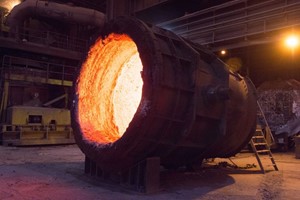News
Materials Processing Institute launches three-year H2 research agreement
The Materials Processing Institute has announced a progressive research partnership with Trent Refractories and Kanthal to examine the potential impact on industrial processes of using H2 as an alternative fuel source.
The three-year research agreement will focus on the effect of H2 on refractories, the heat resistant materials that form the linings for high-temperature furnaces, crucibles, ladles and kilns—primarily used in the iron and steel industry.
It will also test a range of electrical elements, for use in high-temperature applications to discover any advances that need to be made to ensure full operating demands are fulfilled under an aggressive H2 atmosphere.
The initial phase will involve the testing of refractory materials supplied by Scunthorpe-headquartered Trent Refractories to mitigate any degradation caused by H2. Samples will undergo a complex and advanced range of testing at the Institute in H2-rich atmospheres, including microscopy and porosity tests.
Swedish industrial heating technology company Kanthal is seeking to advance the use of electric furnaces and green steel. Combined with advances in H2 production process, their widespread adoption is set to transform the global steel industry over the next two decades.
The Materials Processing Institute will also test a series of electrical elements designed by Kanthal that can tolerate H2’s high heating values at its state-of-the-art H2 research facilities. It will further investigate and test new materials to ensure they are industry ready as clean H2 is further introduced across many industrial processes over the next few years.
Chris McDonald, CEO of the Material Processing Institute, a UK center for research and innovation in the foundation industries, said, “The results of this collaborative research program could have far-reaching effects given the range of industries that depend on refractory solutions, including iron and steel, aluminum, glass, power generation, petrochemicals and chemicals and cement.
“H2 is widely used here at the Institute, and it is crucial that we assess how it is used to help deliver long term solutions that shape and support the UK’s transition to a low carbon economy.”
Bob James, Technical Collaboration Lead at the Institute, said, “It’s already proven that H2 is an alternative clean fuel source capable of powering most industrial processes. However, research is essential to assess how H2 may impact on the processes themselves, including its effect on refractory lining systems, the corrosion of certain compositions, and accelerated wear.”
Katy Moss, Managing Director of Trent Refractories Ltd and the President of the Institute of Refractory Engineers, said, “We are very much looking forward to working with such dynamic partners. It means a lot to the team here at Trent Refractories, to be part of the solutions that enable our foundation industries not only to survive but to sustainably thrive.”
Jesper Ejenstam, R&D Manager of Kanthal, said, “Industry is entering a new age of decarbonization with a mass shift towards electrification and the use of clean fuels such as H2. Kanthal is proud to be part of the research that will ensure such innovations are industry ready.”


